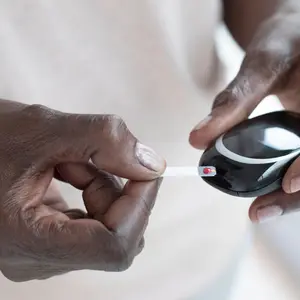

Chronic Conditions and Diseases

Chronic Conditions and Diseases
The Costly Epidemic of Stress
Stress takes a heavy toll on global health and workplace well-being. According to the American Institute of Stress (AIS), 77% of people across the globe experience stress that negatively impacts their physical health, and 73% have stress that negatively affects their mental health.
The AIS says between 75-90% of primary care visits are for stress-related problems, including depression, anxiety, high blood pressure, heart disease, diabetes, obesity, and mental health disorders.
Stress has become commonplace in today’s world. Navigating the constant challenges of life with sensory overload from technology’s bombardment has a major impact on well-being. Stress degrades the overall quality of life and can cause a myriad of problems.
The US’s Occupational Safety and Health Administration (OSHA) says stress is a workplace hazard, costing American industry more than $300 billion a year and causing about a million workers a day to miss work. OSHA calculates that work-related stress causes 120,000 deaths each year. AIS estimates 80% of employees admit to being stressed and don’t know how to handle it. Workplace productivity suffers significantly due to absenteeism, unhappiness, loss of innovation, and lack of focus at work.
Left unchecked, stress is a threat to communities, with consequences such as substance abuse and violence. Social isolation, family disconnection, and loneliness are all by-products of stress.
Known as the father of stress research, Hans Selye, MD, PhD (1907-1982), coined the term “stress” in the 1920s. Selye conducted pioneering research into the symptoms of illness caused by stress. His revolutionary work led to the founding of AIS in 1978.
A basic definition of stress is psychological and physiological reaction to change. Seyle studied the three phases of stress—alarm reaction, resistance, and exhaustion—which he termed General Adaptation Syndrome (GAS). Individuals exposed to a stressor are taken off guard, then resist the change, and eventually fall victim to exhaustion.
In the acute stress response—fight or flight—there is a release of hormones that cause pupils to dilate, while heart rate, blood pressure, and breathing rate increase. The body is ready to run or fight, if necessary. But living in a state of chronic stress doesn’t allow for recovery.
As people realize that chronic stress should not be a normal state of being and take steps to control it, every aspect of their life will most certainly improve. Quieting stress by mastering the mind with practices such as meditation are extremely effective in reducing stress, says AIS, which offers a range of services to practitioners, scientists, healthcare professionals, and the public to understand and combat this modern epidemic.
REFERENCES
The American Institute of Stress. (n.d.). The cost of stress. https://www.stress.org/wp-content/uploads/2021/07/AIS_CaseStatement_Pages_FNL.pdf


 By
By







